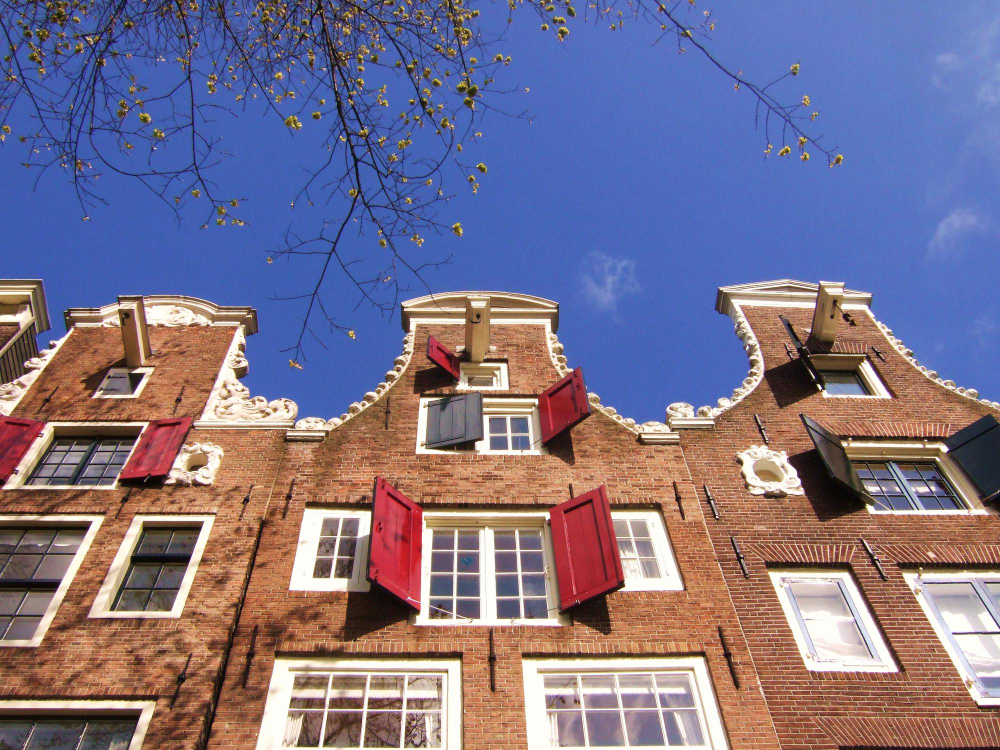Are you thinking about buying a house in the Netherlands? As an expat, buying a Dutch house might seem about as challenging as navigating Amsterdam Centraal after a few biertjes.
By that, we mean that it may be seen as a complicated and stressful process that probably differs from what you’re used to at home.
But don’t worry, buying a house doesn’t have to be (too) complicated.
We asked our readers their burning questions about buying a house in the Netherlands. Then, we asked the mortgage experts at Hanno to answer them.
Hanno offers independent mortgage advice to internationals in the Netherlands who want to buy a house here. That’s right, they’re here for people just like you.
Here’s what they had to say.
How much do I have to earn to buy a house in the Netherlands?
The answer really depends on your personal situation.
As an approximate rule, the maximum mortgage you will be eligible for in the Netherlands is around 4.5 times your yearly brutto (gross) income.
As Hanno’s mortgage expert, Cees Vernooij, explains, “There’s no one-size-fits-all answer, as it greatly depends on individual circumstances, including whether you’re buying alone or with a partner.”
However, he does point out that singletons aren’t out of the running simply because they don’t have a partner.

“In 2024, the Dutch government introduced a significant change to assist single homebuyers, providing an additional €16,000 in borrowing capacity,” he says.
Yep, the Dutch government hasn’t forgotten about the singles just yet.
“This adjustment reflects the government’s recognition of the unique challenges faced by single individuals in the housing market and aims to make homeownership more accessible to a broader range of people,” Cees explains to us.
Tip! Want a more precise calculation? You can try Hanno’s mortgage calculator.
What initial costs do I pay when buying a house in the Netherlands?
Prospective buyers must be prepared for several upfront costs when embarking on the journey to homeownership in the Netherlands.
Hanno’s real estate expert, Bram, tells us, “Before the keys are handed over, buyers encounter a variety of initial expenses.”
These include:
- The taxatie rapport (appraisal report): This determines the value of the home and typically costs approximately €750.
- Notary fees: Hiring a notary will usually cost you around €1,000.
- Real estate agent commissions: A real estate agent will help you find a home, review the contract, and accompany you to the notary office. You can expect to pay anywhere from €3,000 to €6,000
- The bank guarantee: a bank guarantee usually costs about 1% of the amount guaranteed.
- Mortgage advisor fees: Most people work with a mortgage advisor when buying a house in the Netherlands. They usually cost between €1,000 and €3,000.
While you may be rolling your eyes at these costs, each plays a pivotal role in buying a house in the Netherlands.
As Bram says, “It’s money well-spent as it will ensure the process’s legality, financial security, and a proper valuation of the property.”
Of course, being aware of and budgeting for these expenses can significantly smoothen the path to acquiring your new Dutch home.
How much is the deposit if I want to buy a house in the Netherlands?

In the Netherlands, you can finance 100% of the purchase price of a house. However, there are some upfront costs that you must pay out of your own pocket.
These include costs such as taxes, notary fees and the fees for a mortgage advisor.
When signing the contract, you also agree that if you change your mind outside of the thinking period, you’ll pay a 10% fee to the sellers if you cancel. This is the deposit you pay for a house in the Netherlands.
In the Netherlands, you can get a bankgarantie (bank guarantee) to help cover this fee. Just be aware that this will cost 1% of the amount loaned.
Are there any hidden taxes when buying a house in the Netherlands?
Good question! Understanding the tax landscape is essential in the realm of Dutch real estate.
No, there aren’t any hidden taxes you have to pay when buying a house in the Netherlands.
But there is one obvious one: transfer tax.
The amount of transfer tax you have to pay depends on your situation:
- If you are a first-time buyer between the ages of 18 and 35 who is buying a house worth a maximum value of €510,000 in 2024, then congrats! You don’t have to pay transfer tax.
- If you fall outside this exemption, then you must pay a transfer tax of 2% of the value of the house.
- Are you buying the house as an investment property? Then you must pay 8% transfer tax.
However, it’s not all bad news when it comes to taxes and buying a house in the Netherlands.

As Bram points out, “While the transfer tax is a known cost, first-time buyers benefit from certain allowances, making the process more attainable for them.”
“Additionally, homeowners can take advantage of various tax benefits, which can alleviate some of the financial burdens associated with property acquisition.”
These mechanisms are designed to encourage homeownership and provide financial relief, making it crucial for buyers to be well-informed about these opportunities.
In short, yes, there are taxes that you must pay when buying a house in the Netherlands — but no, they aren’t hidden.
Do I need to have a permanent employment contract to be eligible for a Dutch mortgage?

Put simply: no, you don’t need a permanent employment contract in order to become a proud homeowner in the Netherlands, explains Bram.
Diverse employment situations, including those of self-employed individuals (ZZP’ers), can still lead to mortgage eligibility, provided specific criteria are met.
This inclusivity ensures that a wider array of people have the opportunity to pursue homeownership, reflecting a more flexible and accommodating approach by Dutch financial institutions.
Want to know if your employment situation will enable you to buy a home in the Netherlands? You can book a free consultation with Hanno’s experts to learn more about your buying potential.
Can I get a Dutch mortgage while I’m living or working overseas?
In today’s globalised world, the prospect of securing a Dutch mortgage from abroad is a question many internationals face.
While possible, there are a few more hoops that you’re going to have to jump through if you want to buy a house in the Netherlands while travelling or working abroad.

For example, you may have to:
- Indicate when you plan on living full-time in the Netherlands
- Prove that you have enough income to fund the buying of the house while also paying your accommodation costs abroad.
These stipulations ensure that you, as an international buyer, are well-positioned to manage (and fund!) a new house effectively, regardless of your physical location.
Will my student debt affect my chances of buying a house?
The impact of student debt on purchasing a home is a concern for many.
However, when looking at your mortgage application, mortgage advisors are not going to draw a big red circle specifically around your student debt and throw your application out the window.

Advisors are more concerned about your debt overall.
As Bram explains, “All debts, including student loans, are considered when determining your borrowing capacity. This comprehensive assessment ensures that buyers are not overleveraged, promoting financial stability and responsibility in homeownership.”
It’s not just about whether or not you have student debt, what matters is how high any debts are.
Want to know how your specific debt will affect your chances of getting a mortgage?
Make a free appointment with a Hanno mortgage advisor or sign up for their housing webinar ‘How to buy a house in the Netherlands‘, in which Hanno’s experts will explain the home-buying process in detail.
Do you have more questions for us? Leave these in the comments below!